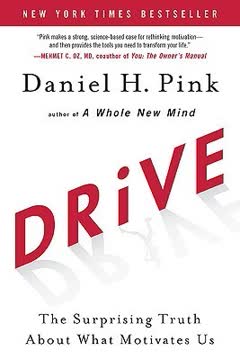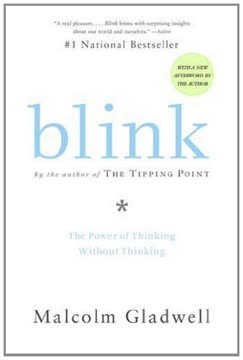Key Takeaways
1. First impressions are powerful but potentially misleading
"When we make a snap judgment, it is made in a snap. It's also, very clearly, a judgment: we get a feeling that we have no difficulty articulating."
Rapid assessment: Our brains are wired to make quick judgments about people within seconds of meeting them. These initial impressions can be surprisingly accurate in some aspects, such as assessing teaching ability or interview performance.
Potential pitfalls: However, these snap judgments are often based on limited information and can be heavily influenced by our own biases and preconceptions. They may lead us to overlook important aspects of a person's character or abilities that are not immediately apparent.
Balancing act: While first impressions can provide valuable intuitive insights, it's crucial to recognize their limitations and not rely on them exclusively. Effective decision-making, especially in professional contexts, requires a more comprehensive evaluation that considers multiple factors and perspectives.
2. The talent myth: overvaluing individual brilliance
"The broader failing of McKinsey and its acolytes at Enron is their assumption that an organization's intelligence is simply a function of the intelligence of its employees. They believe in stars, because they don't believe in systems."
System over stars: Many organizations, influenced by management consultants, place excessive emphasis on recruiting and rewarding top individual performers. This "talent mindset" can lead to a neglect of crucial organizational systems and processes.
Enron's cautionary tale: The collapse of Enron demonstrates the dangers of prioritizing individual talent over organizational structure and ethics. Despite hiring numerous "stars" from top universities, the company's lack of robust systems and checks led to its downfall.
Balanced approach: Successful organizations recognize that:
- Individual talent is important but not sufficient
- Strong systems and processes are crucial for long-term success
- A collaborative culture often outperforms a collection of individual stars
- Effective leadership involves creating an environment where talent can thrive within a well-structured organization
3. Criminal profiling's limitations and the power of context
"The fact is that different offenders can exhibit the same behaviors for completely different reasons."
Profiling pitfalls: Criminal profiling, despite its popularity in media and law enforcement, often relies on oversimplified generalizations and fails to account for the complexity of human behavior.
Context matters: Research shows that people's behavior is heavily influenced by their immediate situation and environment, rather than being solely determined by fixed personality traits. This "fundamental attribution error" leads us to overestimate the importance of character and underestimate the power of circumstances.
Implications for law enforcement:
- Move away from rigid personality-based profiles
- Focus on gathering concrete evidence and understanding situational factors
- Develop more nuanced and flexible approaches to criminal investigation
- Recognize the limitations of expert intuition and embrace data-driven methods
4. The flaws in traditional job interviews
"The interview is hopelessly biased in favor of the nice."
Inherent biases: Traditional unstructured job interviews are often poor predictors of actual job performance. They tend to favor candidates who are personable and make good first impressions, regardless of their actual qualifications or fit for the role.
Limited perspective: Brief encounters in an interview setting provide only a narrow view of a candidate's abilities and personality. Interviewers often make broad generalizations based on limited information, falling prey to the fundamental attribution error.
Alternatives to consider:
- Structured interviews with standardized questions and evaluation criteria
- Work sample tests or simulations that directly assess job-related skills
- Multiple rounds of interviews with different team members
- Consideration of past performance and concrete achievements
- Personality assessments when relevant to job requirements
5. Pit bulls and profiling: The dangers of broad generalizations
"Because we don't know which dog will bite someone or who will have a heart attack or which drivers will get in an accident, we can make predictions only by generalizing."
Necessity and peril: Generalizations are often necessary for decision-making and policy-making, but they can also lead to unfair discrimination and oversimplification of complex issues.
Category problem: Effective generalizations require clear definitions of categories, which is often challenging in real-world situations. For example, "pit bull" is not a single breed but a loosely defined category of dogs with similar physical characteristics.
Balancing act:
- Recognize the utility of generalizations in some contexts
- Be aware of the limitations and potential harm of overly broad categorizations
- Seek more nuanced and data-driven approaches when possible
- Regularly reassess and refine generalizations based on new information
6. The complexity of identifying and nurturing talent
"Success in the modern economy, according to Michaels, Handfield-Jones, and Axelrod, requires 'the talent mind-set': the 'deep-seated belief that having better talent at all levels is how you outperform your competitors.'"
Beyond raw ability: Identifying and developing talent is more complex than simply recruiting "the best and brightest." Factors such as organizational culture, job fit, and personal growth opportunities play crucial roles in determining an individual's success within a company.
Growth mindset: Research by psychologist Carol Dweck suggests that individuals who believe their abilities can be developed (growth mindset) often outperform those who view their talents as fixed traits. This has implications for how organizations approach talent development and performance evaluation.
Holistic approach to talent management:
- Create systems that allow talent to flourish
- Provide opportunities for continuous learning and skill development
- Foster a culture that values collaboration and teamwork
- Recognize and reward improvement and effort, not just innate ability
- Align individual strengths with organizational needs
7. Rethinking our approach to hiring and evaluation
"Social progress, unless we're careful, can merely be the means by which we replace the obviously arbitrary with the not so obviously arbitrary."
Beyond first impressions: While intuition and personal chemistry play a role in hiring decisions, relying too heavily on these factors can lead to biased and ineffective choices. Organizations need to develop more rigorous and objective methods for evaluating candidates and employees.
Systemic approach: Effective hiring and evaluation require a comprehensive strategy that goes beyond assessing individual brilliance. This includes:
- Clearly defined job requirements and success criteria
- Standardized evaluation processes
- Consideration of team dynamics and organizational fit
- Ongoing performance assessment and feedback
- Recognition of the role of systems and processes in enabling individual success
Continuous improvement: As our understanding of human behavior and organizational dynamics evolves, so too should our approaches to talent management. Regular reassessment of hiring and evaluation practices, informed by data and research, is crucial for building high-performing organizations in the modern economy.
Last updated:
FAQ
What's "Personality, Character, and Intelligence: Part Three from What the Dog Saw" about?
- Collection of Essays: This section of Malcolm Gladwell's book is a collection of essays originally published in The New Yorker, focusing on themes of personality, character, and intelligence.
- Exploration of Human Behavior: The essays explore how we perceive and evaluate human behavior, often challenging conventional wisdom and assumptions.
- Diverse Topics: Topics range from the nature of genius and the effectiveness of job interviews to the reliability of criminal profiling and the myths surrounding talent.
Why should I read "Personality, Character, and Intelligence: Part Three from What the Dog Saw"?
- Insightful Analysis: Gladwell provides thought-provoking insights into how we understand and misinterpret human behavior.
- Challenging Assumptions: The book challenges readers to reconsider commonly held beliefs about intelligence, talent, and success.
- Engaging Writing: Gladwell's engaging storytelling and clear writing make complex ideas accessible and interesting.
What are the key takeaways of "Personality, Character, and Intelligence: Part Three from What the Dog Saw"?
- Genius and Precocity: Genius is often equated with early achievement, but Gladwell argues that late bloomers can be equally successful.
- Job Interviews: Traditional job interviews may not be as effective as we think in predicting job performance.
- Criminal Profiling: The reliability of criminal profiling is questioned, suggesting it may be more of an art than a science.
How does Malcolm Gladwell define "The Talent Myth"?
- Overemphasis on Talent: Gladwell critiques the idea that success is solely based on hiring and rewarding the most talented individuals.
- System vs. Stars: He argues that organizational success often depends more on systems and processes than on individual talent.
- Enron Example: The downfall of Enron is used to illustrate the dangers of overvaluing talent without considering systemic factors.
What is the "Quarterback Problem" as discussed by Malcolm Gladwell?
- Unpredictable Performance: The "Quarterback Problem" refers to the difficulty in predicting future performance based on past achievements, particularly in complex roles like NFL quarterbacks.
- Teaching Analogy: Gladwell extends this idea to teaching, suggesting that identifying great teachers is similarly challenging.
- Implications for Hiring: The concept questions the effectiveness of traditional hiring practices that rely heavily on past performance indicators.
What does Malcolm Gladwell say about "Late Bloomers"?
- Different Paths to Success: Gladwell argues that late bloomers often take a different path to success, characterized by experimentation and gradual improvement.
- Cézanne Example: He uses the example of the artist Cézanne, who achieved success later in life through persistent effort and refinement.
- Support Systems: Late bloomers often require support and patience from others to reach their potential.
How does Malcolm Gladwell critique "Criminal Profiling"?
- Questionable Accuracy: Gladwell questions the accuracy and scientific basis of criminal profiling, suggesting it may rely more on intuition than evidence.
- Case Studies: He examines famous cases, like the Mad Bomber, to illustrate the limitations and inconsistencies in profiling.
- Comparison to Cold Reading: Profiling is compared to cold reading, where vague and general statements can be interpreted as accurate.
What insights does Malcolm Gladwell offer on "Job Interviews"?
- First Impressions: Gladwell discusses how first impressions in interviews can be misleading and may not accurately predict job performance.
- Structured Interviews: He advocates for structured interviews, which focus on specific, job-related questions to reduce bias.
- Fundamental Attribution Error: The tendency to overemphasize personality traits and underestimate situational factors in interviews is highlighted.
What are the best quotes from "Personality, Character, and Intelligence: Part Three from What the Dog Saw" and what do they mean?
- "Genius, in the popular conception, is inextricably tied up with precocity." This quote challenges the notion that genius is only about early achievement, suggesting that success can come at any age.
- "The problem with picking quarterbacks is that Chase Daniel’s performance can’t be predicted." This highlights the unpredictability of performance in complex roles, questioning traditional evaluation methods.
- "The talent myth assumes that people make organizations smart. More often than not, it’s the other way around." This quote emphasizes the importance of systems and processes over individual talent in achieving organizational success.
How does Malcolm Gladwell address "Pit Bulls and Crime"?
- Generalization Issues: Gladwell explores the problems with generalizing about pit bulls as inherently dangerous, drawing parallels to how we generalize about crime.
- Instability of Traits: He discusses how the traits associated with dangerous dogs and criminals can be unstable and influenced by various factors.
- Policy Implications: The book questions the effectiveness of policies based on broad generalizations, advocating for more nuanced approaches.
What is the significance of "The New-Boy Network" in the book?
- Hiring Practices: "The New-Boy Network" examines the biases and limitations of traditional hiring practices, particularly the reliance on interviews.
- Chemistry vs. Competence: Gladwell discusses the tendency to hire based on personal chemistry rather than objective competence.
- Structured Approach: He suggests that a more structured approach to hiring could lead to better outcomes by focusing on relevant skills and behaviors.
How does Malcolm Gladwell use anecdotes and case studies in "Personality, Character, and Intelligence: Part Three from What the Dog Saw"?
- Illustrative Stories: Gladwell uses anecdotes and case studies to illustrate complex ideas and make them relatable to readers.
- Real-World Examples: He draws on real-world examples, such as Enron and the Mad Bomber, to challenge conventional wisdom and highlight key concepts.
- Engagement and Insight: These stories engage readers and provide deeper insights into the themes of personality, character, and intelligence.
Review Summary
Readers generally find What the Dog Saw engaging and thought-provoking, praising Gladwell's unique perspective on various topics. Many appreciate his ability to connect seemingly unrelated subjects and draw insightful conclusions. Some readers find certain essays more compelling than others, with favorites including discussions on late bloomers, hiring practices, and intelligence testing. While most enjoy Gladwell's writing style, a few question the depth of his research and analysis. Overall, the book receives positive reviews for its ability to challenge conventional thinking and spark curiosity.
Similar Books








Download PDF
Download EPUB
.epub digital book format is ideal for reading ebooks on phones, tablets, and e-readers.














